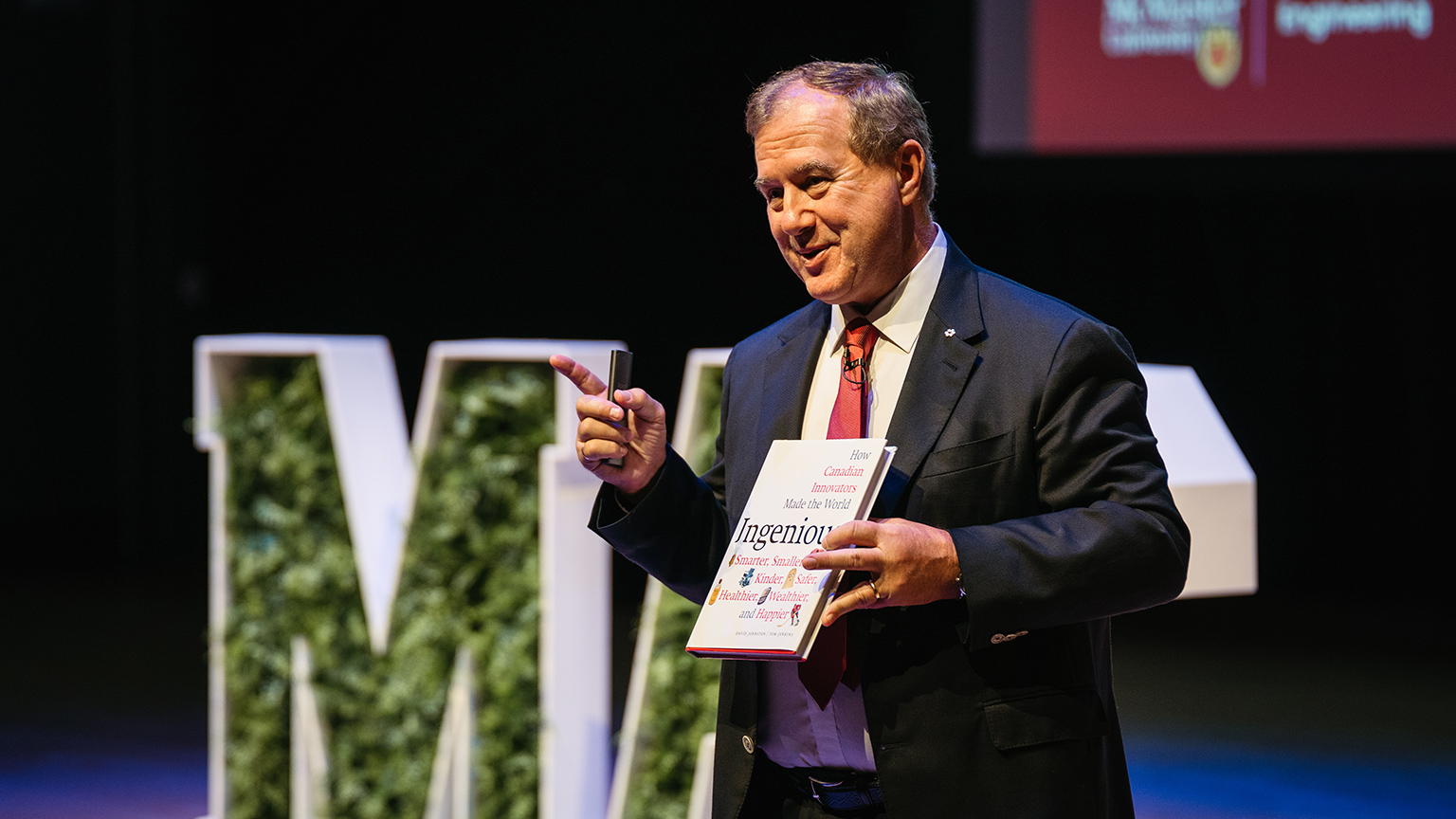

Tom Jenkins, a tech industry titan and the longstanding Chair of the Board at OpenText, one of the world’s leading business applications and connections software companies, spoke to an audience of 200 with insights from his four-decade-long career.
As an Engineering Physics and Management alumnus, Jenkins was invited to share his experiences during the faculty’s annual premier speaker series, the John Hodgins Memorial Lecture, on October 2.
Having been part of world-changing technological advancements like helping design the first search engine and wire-wrapping what would be the first-ever ATI Wondercard for IBM personal computers, Jenkins emphasized that while “engineers are prognosticators and designers of technology like AI, society needs to be ready for it.”
“Some of the first fibre-optic innovations took place here on this campus,” he explained. “But it was 20 years ahead of when we were ready for it to be used. We hadn’t yet designed a Dick Tracy-style watch to connect to it.”
Jenkins emphasized the pervasive impact AI will have on all facets of life, noting that it’s better, faster and cheaper than human workers. He also warned of the ethical and legal considerations that will determine how we move forward with storing and scraping data to support large language models (LLM) to improve AI. “Just because we can do it, doesn’t mean we will. Society will determine the rules of the game,” he said.
Many student attendees asked questions of Jenkins, who is a supporter of McMaster bursaries and scholarships, including one in his father’s memory for a student with a connection to the Canadian Forces.
“You have to leap in,” says Jenkins when asked how to get involved in AI advancements. “Whether you work for an established company or start your own, you are your own LLM and will benefit from all experiences.”
If you’re interested in learning more about managing AI In the future, consider reading The Anticipant Organization authored by Tom Jenkins, Mark J. Barrenechea and David Fraser.

